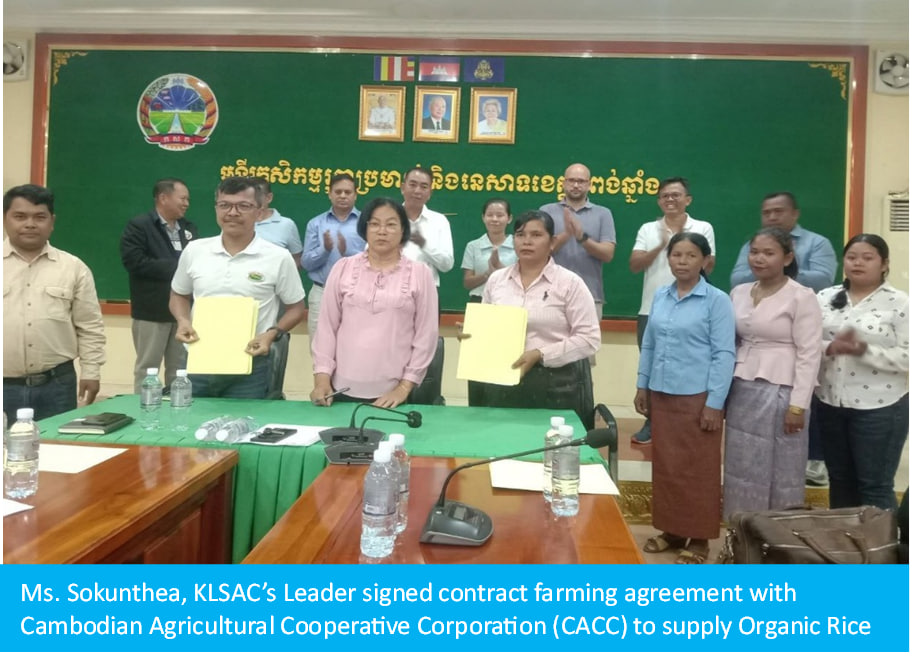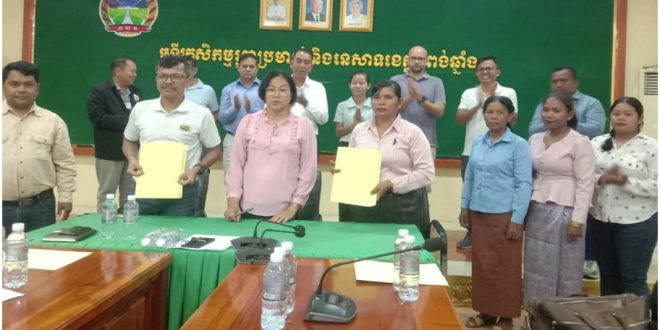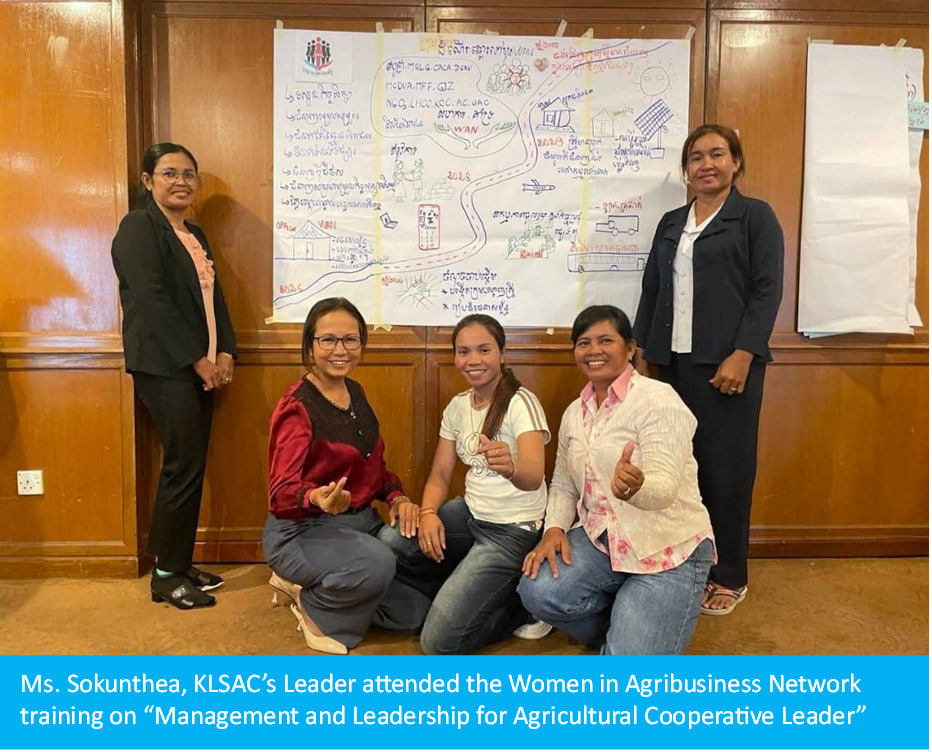Case Study: Kraing Leav Samaki Agricultural Cooperative (KLSAC)
Introduction
Agriculture continues to be a cornerstone of Cambodia’s economy, contributing 24.4% to the national GDP and employing 35.5% of the labor force in 2021. Despite th.e steady decline of agricultural labor due to rural-urban and international migration, the sector retains significant potential, particularly because 33% of the country’s population are youth, most of whom live in rural areas and engage in farming. Recognizing this potential, the Ministry of Agriculture, Forestry and Fisheries has prioritized strengthening farmer organizations and agricultural communities as a key strategy to improve production, market linkages, and contract farming mechanisms. Agricultural cooperatives are established as private legal entities that pool members’ resources to engage in agribusiness, collective farming, and service provision. While many agricultural cooperatives continue to face challenges related to weak management capacity, irregular supply of products, and limited business planning, partnerships with government, civil society, and the private sector have become a driving force in enhancing their growth and sustainability. History and Objectives of KLSAC
History and Objectives of KLSAC
The Kraing Leav Samaki Agricultural Cooperative (KLSAC) was established in 2012 in Kampong Chhnang Province with 97 members and an initial capital of USD 2,500. Over the years, the KLSAC has expanded to more than 237 members with a capital base of about USD 121,000. Its objectives are diverse, ranging from supplying organic paddy rice and fertilizer, operating a rice mill, and offering livestock and vegetable farming, to supporting product processing, technical training, and microcredit services. Today, KLSAC operates multiple business groups including rice milling, savings and credit, organic rice and vegetable production, chicken and pig raising, palm sugar production, and handicrafts. The community has built solid market linkages, supplying products to buyers in Phnom Penh such as the Cambodian Agricultural Cooperative Corporation (CACC), Udom Rice, the Khmer Organic Cooperative Company (KOC), and handicraft markets.
Partnerships Driving Contract Farming
KLSAC’s progress has been largely shaped by strong partnerships. With NGOs such as the Cambodian Partnership for the Development of Human Resources in Rural Areas Association (CamboDHRRA), Farmers and Nature Network Association (FNN) and Danish Church Aid (DCA), the AC benefited from initiatives that promoted model farms, capacity building, and improved business planning. A crucial actor in this process has been CamboDHRRA, which hosts the Agribusiness Partnership Hub (APH). The Hub plays a facilitation role by bringing together producers, buyers, NGOs, and government agencies to strengthen contract farming models and collective marketing. Through APH, CamboDHRRA has directly supported KLSAC to connect with CACC and KOC, enabling constructive dialogue, building trust, and creating business agreements. Beyond facilitation, CamboDHRRA has also provided leadership development, supported policy dialogue, and coordinated with both provincial and national actors to ensure that smallholder farmers gain a stronger voice in value chain governance.
Equally important has been collaboration with the private sector, particularly with CACC and KOC. These partnerships have improved the certification and export readiness of KLSAC’s organic rice and vegetables. The APH meetings convened by CamboDHRRA provided the space for CACC, KOC, and KLSAC to coordinate on production standards, product collection, certification processes, and fair pricing. These efforts have already produced tangible results, such as the export of organic rice to Europe and the certification of vegetables under GAP and organic standards.
Ms. Phuong Sophal, member of the KLSAC said that “Joining the agricultural cooperative has strengthened my capacity and I don’t have to worry about the lack of a market to sell my products. I only focus on producing to meet market demand. Selling my products has made me much more profitable, which has improved my living standards and has given me a better image in the community. In fact, I was elected by the members as the vice president of the agricultural cooprative in this new term”.
Keys to Success
One of the keys to KLSAC’s success is the effective partnership and coordination facilitated by CamboDHRRA through the Agribusiness Partnership Hub. By creating a neutral and inclusive platform, APH has allowed government, the private sector, civil society, and farmer organizations to meet regularly, ensuring transparency in contracts, alignment of quality standards, and better market access for smallholder farmers. In addition, the Hub has supported business matching, capacity-building activities, and multi-stakeholder reflection processes, which have not only strengthened trust but also fostered long-term collaboration. Through these efforts, KLSAC has been able to scale up its production, diversify its markets, and secure fair and profitable opportunities for its members.
Broad partnership, strengthening self-sufficiency in responding to market needs, creating constant innovation, and increasing confidence among members are the key principles that the Kraing Leav Samaki Agricultural Cooperative has adopted. Mrs. Khim Kunthea, President of the KLSAC.
 Cambodhrra Cambodian Partnership for Development Human Resource in Rural Area Association
Cambodhrra Cambodian Partnership for Development Human Resource in Rural Area Association

